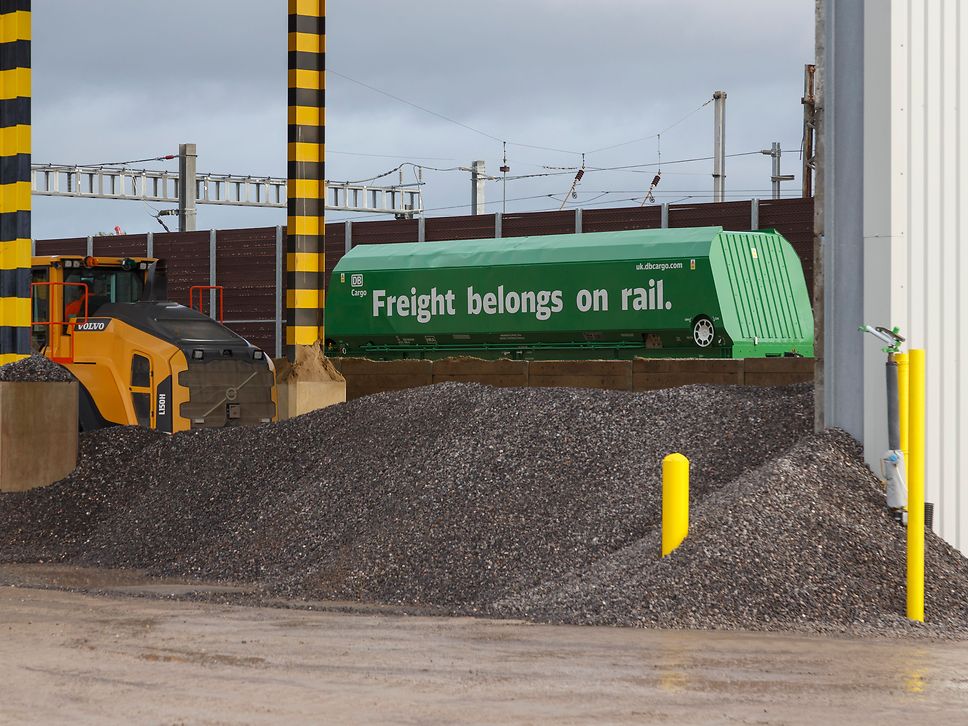Article: New research confirms that ‘Freight Belongs on Rail’, says DB Cargo UK
Welcoming the new analysis, CEO Andrea Rossi said it gave further weight to the company’s argument that ‘Freight Belongs on Rail.’
“We’ve spent the last two years lobbying politicians and civil servants of the significant economic and environmental benefits of rail freight over road haulage,” said Andrea.
“Freight Belongs On Rail. We know it. Our existing customers know it. The public knows it. We now need the UK Government to work with us to enable more of it to switch from road to rail.” he added.
“Setting a clear and ambitious target for rail freight growth, like already exists in Scotland, will give confidence in the sector, stimulate investment and unlock rail freight’s true potential.”
Andrea said the latest research, commissioned by Rail Partners, showed the size of the economic and environmental benefits was increasing all the time, with freight operating companies now able to run longer and heavier trains.
He said DB Cargo UK’s pioneering use of hydro-treated vegetable oil (HVO) to fuel its locomotive fleet was also helping to drive down carbon emissions even further.
“This latest research shows that a single freight train can now carry the equivalent of 129 HGVs. If you then run that train on HVO, as opposed to diesel, the reduction in carbon emissions is even greater!” added Andrea.
ENDS
Notes to Editors:
The report - Freight expectations: How rail freight can support Britain’s economy and environment – was commissioned by Rail Partners and includes independent analysis by Aether, the University of Hull’s Logistics Institute and Railfreight Consulting.
The report demonstrates rail freight’s continued environmental advantage over the road haulage sector. It also shows that, if the rail freight sector is supported by the right policy environment, it can flourish and help support a more prosperous, greener economy in the future.
When comparing road and rail flows today, Aether concluded a typical freight service produces 76% less CO2 per tonne than the equivalent movement by road. By operating longer and heavier freight services, freight operators are significantly improving productivity and growing the freight market. Analysis shows these innovative services ease road congestion by removing up to 129 HGVs from the road network per train, while further enhancing rail freight’s carbon and air quality performance.
If Government sets an ambitious target to treble rail freight by 2050, the sector will deliver nearly £5.2bn in economic benefits as a minimum. It will also support road decongestion and improved air quality, with the sector forecast to remove the need for over 20 million HGV journeys annually.
ENDS
